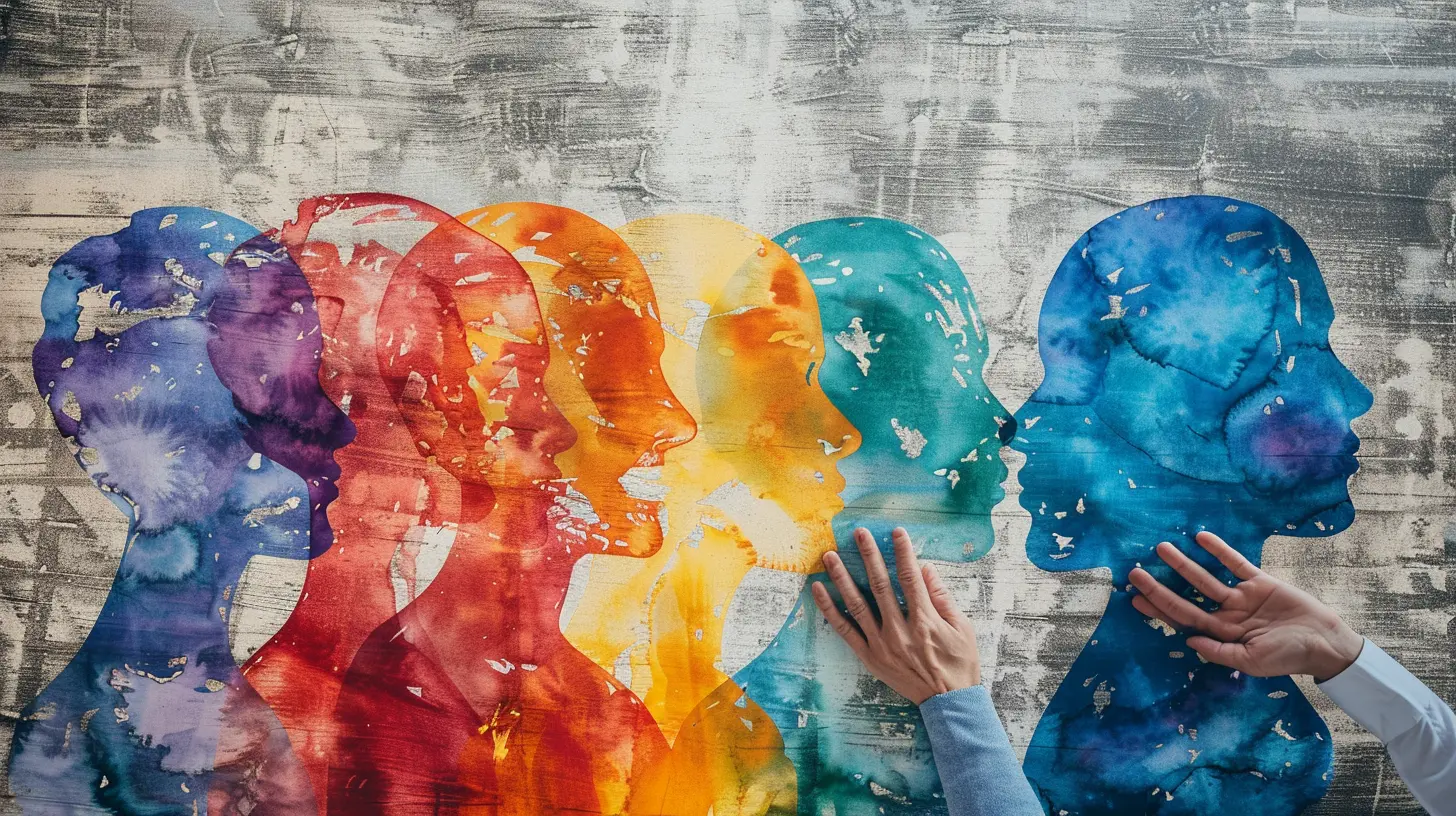The Role of Peer Support in Mental Health Advocacy
21 October 2025
Introduction
Let’s be honest—mental health struggles can feel isolating. When you're battling anxiety, depression, or any other mental health challenge, it often seems like no one truly understands. But what if I told you that someone who has walked a similar path could make all the difference? That’s where peer support comes in.
Peer support is a game-changer in mental health advocacy. It’s about people who have firsthand experience with mental health challenges helping each other out. They provide guidance, encouragement, and understanding in ways that professionals sometimes can't. Let’s dive into why peer support is so crucial and how it’s shaping mental health advocacy. 
What Is Peer Support in Mental Health?
At its core, peer support is about people with shared experiences helping one another. These aren’t therapists or doctors; they’re individuals who have lived through their own mental health challenges and now offer support to others facing similar struggles.Peer support can take different forms, including:
- One-on-one mentorship – Someone with lived experience providing guidance to another person.
- Support groups – Groups where individuals share experiences, coping strategies, and encouragement.
- Online communities – Digital spaces where people connect, share, and support each other.
- Workplace or school programs – Organizations fostering peer mentoring for mental wellness.
But why does this type of support matter so much? Let’s break it down. 
Why Peer Support Matters in Mental Health Advocacy
1. A Sense of Belonging and Understanding
Imagine talking to someone who just gets it—someone who knows what you’re going through because they've been there too. That connection can be powerful. It eliminates isolation and helps individuals realize they’re not alone.Unlike traditional therapy, where a professional might rely on textbook knowledge, peer support is raw and real. It’s built on shared experiences, which builds trust almost instantly.
2. Reducing Stigma Around Mental Health
Society has come a long way in understanding mental health, but stigma still exists. Many people fear judgment or misunderstanding, which keeps them from seeking help.Peer support normalizes the conversation. When people see others openly discussing their mental health journeys, it encourages them to do the same. Over time, this collective openness chips away at the stigma and helps mental health advocacy move forward.
3. Encouraging Help-Seeking Behavior
One major barrier to mental health treatment is fear—fear of being judged, of not being understood, or of feeling "weak." But when someone with lived experience says, "Hey, I’ve been there, and getting help changed my life," it hits differently.Hearing success stories from peers can push someone toward professional care. It reassures them that seeking help isn’t a sign of weakness—it’s strength in action.
4. Providing Non-Judgmental Support
Let’s be real—judgment can make or break someone’s willingness to open up. Peer support creates a safe space where people feel free to share their thoughts without fear of being labeled or dismissed.This kind of environment fosters honest conversations. Whether someone is dealing with depression, bipolar disorder, or PTSD, they can express themselves without hesitation.
5. Giving Hope and Motivation
Mental health struggles can sometimes feel never-ending. However, seeing someone who once struggled but is now thriving gives hope. It's proof that things can get better.Hope is contagious, and peer support spreads it like wildfire. It reassures individuals that healing is possible, even if the road is long and winding. 
How Peer Support Shapes Mental Health Advocacy
The impact of peer support extends beyond individuals—it plays a vital role in mental health advocacy on a larger scale. Here’s how:1. Strengthening Mental Health Awareness Campaigns
Advocacy campaigns become more powerful when they incorporate real voices. Personal stories resonate deeply, making mental health issues feel tangible rather than abstract concepts.Organizations often use peer voices in awareness campaigns, social media, and policy discussions. These firsthand accounts highlight real struggles and victories, making advocacy efforts more relatable.
2. Influencing Mental Health Policies
When policymakers hear personal testimonies about the impact of peer support, they’re more likely to expand mental health services. Many mental health policies have been shaped by people sharing their lived experiences.For example, peer-led initiatives have helped push for better accessibility to mental health services, insurance coverage for therapy, and workplace mental health policies.
3. Bridging the Gap Between Professionals and Patients
While mental health professionals provide essential clinical care, they sometimes lack the lived experience to fully relate to their patients. Peer support bridges this gap.Many mental health organizations now hire peer support specialists to work alongside clinicians. These specialists add a layer of emotional understanding that traditional therapy alone may not provide.
4. Improving Mental Health Recovery Rates
Studies show that people receiving peer support often experience better mental health outcomes. Why? Because peer interactions create a sense of accountability, motivation, and real-world strategies that traditional therapy might not cover.When individuals see others successfully navigating life with mental health conditions, they’re inspired to take control of their own recovery journey. 
How to Access Peer Support
Now you’re probably wondering, how can someone find peer support? Luckily, there are many ways to connect with like-minded individuals who can offer guidance.1. Join a Local or Online Support Group
Many organizations, such as NAMI (National Alliance on Mental Illness) and Mental Health America, offer peer-led support groups. These can be in-person or virtual.2. Engage in Online Communities
Platforms like Reddit, Facebook Groups, and mental health apps (like 7 Cups or TalkLife) provide digital spaces where people share experiences and advice.3. Seek Peer Support Programs Through Mental Health Organizations
Many nonprofits and mental health institutions offer structured peer support programs. Look for initiatives near you that connect people with lived experience.4. Consider Becoming a Peer Supporter
If you’ve overcome mental health challenges and want to give back, consider becoming a certified peer support specialist. There are many training programs available that teach how to guide others through their journey.The Future of Peer Support in Mental Health
With mental health awareness growing, peer support is here to stay—and it’s evolving. More workplaces, schools, and even healthcare settings are incorporating peer mentoring into their mental health initiatives.Expect to see:
- More peer-run mental health centers
- Increased funding for peer support programs
- Greater integration of peer supporters in healthcare settings
And let’s not forget the power of social media. Platforms like Instagram, TikTok, and Twitter are becoming hubs for peer-led mental health advocacy, spreading positivity and encouraging help-seeking behaviors.
Final Thoughts
At the end of the day, peer support is a lifeline. It reminds us that we’re not alone, that our struggles are valid, and that healing is possible. It has the power to change individual lives and push mental health advocacy to new heights.So whether you need support or want to offer it, peer support is worth embracing. Because when we stand together, mental health advocacy becomes stronger than ever.
all images in this post were generated using AI tools
Category:
Mental Health AdvocacyAuthor:

Gloria McVicar
Discussion
rate this article
1 comments
Zealot McIntosh
Peer support is invaluable in mental health advocacy, fostering connection and understanding while empowering individuals to share their experiences and challenges.
November 7, 2025 at 4:34 AM

Gloria McVicar
Thank you for your insightful comment! I completely agree—peer support truly enriches mental health advocacy by creating meaningful connections and empowering individuals.


